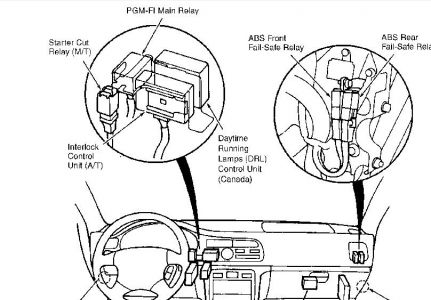Hi Otto,
I would be surprised if this wasn't an Ignition Control Module problem. I have experienced exactly the same symtoms in another make of car. As I understand it, these modules contain electronic circuitry which due to the 'hostile' location of the module ie on the distributor are encased in a heat resitant material. This material can break down and when it does the module's components can overheat. Leaving the car to cool down solves the problem, at least until you start the car and the module heats up again. You may have noticed the problem getting worse over time. A short hesitation or motor cutout at speed occassionally, maybe a failure to start after a short stop on a hot day, and then the events occur more frequently and the effects are more problematic.
The Ignition module is a control mechanism which sends data to and receives data from the Powertrain Control Module (PCM) or on-board computer. One of its key functions is to detect programmed ignition pulses (PIPs). PIPs occur as the magnets in the distributor pass a Hall effect sensor and create pulses of voltage. When the Ignition Module receives these PIP signals it sends the data to the PCM which tells the PCM that the engine is rotating and what the ignition timing is. The PCM sends data back to the Ignition Module which in turn relays this to the coil and bingo, thousands of volts head to the appropriate spark plug. The PCM also uses the information from the Ignition Module to tell the fuel injection solenoids to start pulsing. Thus we have those two vital ingedients, spark and fuel.
When an ignition module fails, the PCM no longer receives the vital signs from the distributor and must assume the engine has stopped rotating. Acordingly it ceases to send information that would allow the coil to energise and of course ceases to allow the fuel solenoids to pulse into (what it now believes) is a non-rotating engine. There will still be pressure at the fuel rail though. The result is no spark or fuel to the cylinders. The motor cutouts completely and no amount of cranking is going to start it.
This leads to a key indicator of a faulty Ignition Module ie no fuel or spark will be available while the Module is intermitantly not working. To fix the problem, you can buy a new Ignition Module or purchase a secondhand distributor complete with Ignition Module.
As a matter of interest, faulty Ignition Modules can be quite dangerous and I understand have been implicated in otherwise unexplained fatal highway accidents where faulty vehicles travelling at highway speeds inexplicably and rapidly deaccelarate without any brake light indication or warning and are hit by following vehicles. Food for thought. Hope this helps. :)
SPONSORED LINKS
Tuesday, December 30th, 2008 AT 7:23 AM



